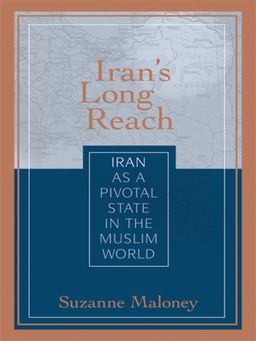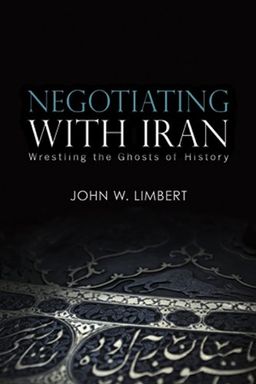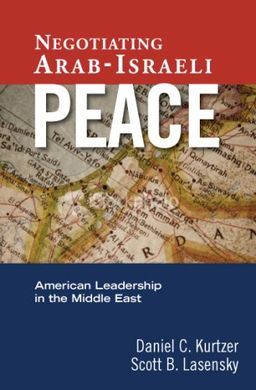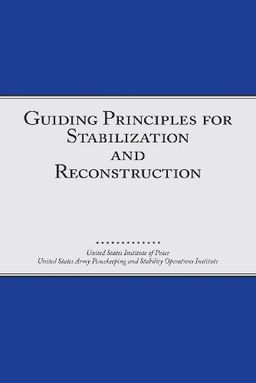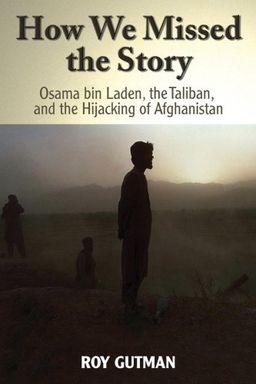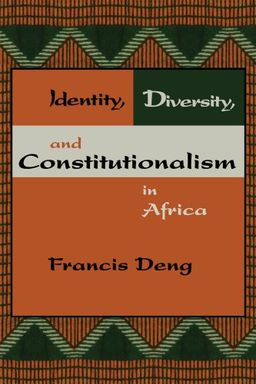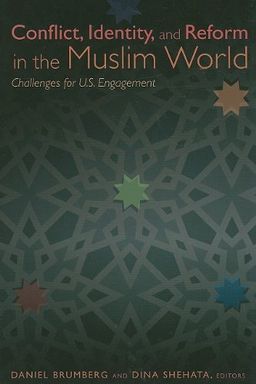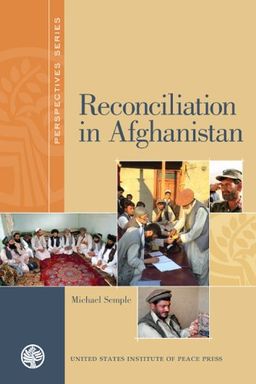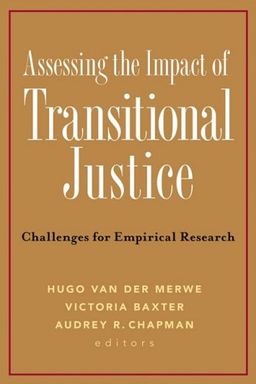הוצאת United States Institute of Peace Press
הספרים של הוצאת United States Institute of Peace Press
| 1. |
By virtue of its size, history, resources, and strategic location, Iran under any circumstances would pose particular relevance for American policy, but the 1979 revolution and the political system that it wrought placed Iran squarely at the heart of U.S. security challenges. As the third book in...
|
| 2. |
| 3. |
A unique effort to combine Russian and American perspectives on the role of human rights in the U.S.-Soviet relationship at the end of the Soviet Union.
Dmitri Trenin, The Nixon Center Includes forewords by Mikhail Gorbachev and George P. Shultz A diplomatic memoir unlike any o... |
| 4. |
Negotiating with Iran: Wrestling the Ghosts of History (Cross-Cultural Negotiation Books)
מאת John W. Limbert
As the United States weighs a change of approach toward the Iranian government after thirty years of confrontation, John Limbert steps up with a pragmatic yet positive assessment of how to engage Iran. Through four detailed case studies of past successes and failures, he draws lessons for today s ne...
|
| 5. |
"Brilliantly considered, crisply written, unsparing in its conclusions, Suicide Bombers in Iraq is an absolutely essential contribution to understanding the factions that are warring over the future of that shattered country, the region, and Islam." - Lawrence Wright, author of Th...
|
| 6. |
Negotiating with Iran: Wrestling the Ghosts of History (Cross-Cultural Negotiation Books)
מאת John W. Limbert
As the United States weighs a change of approach toward the Iranian government after thirty years of confrontation, John Limbert steps up with a pragmatic yet positive assessment of how to engage Iran. Through four detailed case studies of past successes and failures, he draws lessons for today s ne...
|
| 7. |
As Washington struggles to revive the Arab-Israeli peace process, Kurtzer and Lasensky offer the definitive guidebook on how to broker peace in the Middle East. Negotiating Arab-Israeli Peace sets forth a compelling, interests-based framework for American engagement in the peace process; prov...
|
| 8. |
Guiding Principles for Stabilization and Reconstruction presents the first-ever, comprehensive set of shared principles for building sustainable peace in societies emerging from violent conflict. The manual serves as a tool for U.S. government civilian planners and practitioners engaged in st...
|
| 9. |
How We Missed the Story: Osama Bin Laden, the Taliban and the Hijacking of Afghanistan
מאת Roy Gutman
Focusing principally on events and policy missteps in Afghanistan in the 1980s and 1990s, award-winning journalist Roy Gutman weaves a narrative that exposes how and why the U.S. government, the United Nations, and the Western media "missed the story" in the leadup to 9/11. He advances this narrativ...
|
| 10. |
Since independence, African states have struggled under the burden of European models of governance. Hobbled by these alien frameworks, countries have limped from crisis to crisis, unable to establish their democratic legitimacy or to quell the secessionist demands of marginalized minorities. In thi...
|
| 11. |
Conflict, Identity, and Reform in the Muslim World: Challenges for U.S. Engagement
מאת Daniel Brumberg
Policymakers and activists in the United States, Europe, and the Muslim world today face a growing challenge of how to prevent disputes now woven into the fabric of Western-Muslim relations from splintering destabilizing political communities. Conflict, Identity, and Reform in the Muslim World highl...
|
| 12. |
Beyond the National Interest: The Future of UN Peacekeeping and Multilateralism in an Era of U.S. Primacy
מאת Jean-Marc Coicaud
Whatever happened to multilateral peacekeeping? This is the central question Jean-Marc Coicaud explores in this penetrating scholarly examination of the period of "robust" UN-mandated peacekeeping missions in humanitarian crises. The most notable peace operations during this period were undertaken b...
|
| 13. |
Following the collapse of the Taliban regime in December 2001, Afghan leaders met in Bonn, Germany, determined to restore governance to Afghanistan and to create a durable peace. Although the Bonn Accords called for the inclusion of estranged factions into the new political system, the Afghan govern...
|
| 14. |
As new forms of government replace repressive regimes, the perennial question arises: how to deal with the wrongdoers of the old regime? In the effort to heal and rebuild societies torn by violence, new governments and the international community have tried mechanisms ranging from criminal trials an...
|

